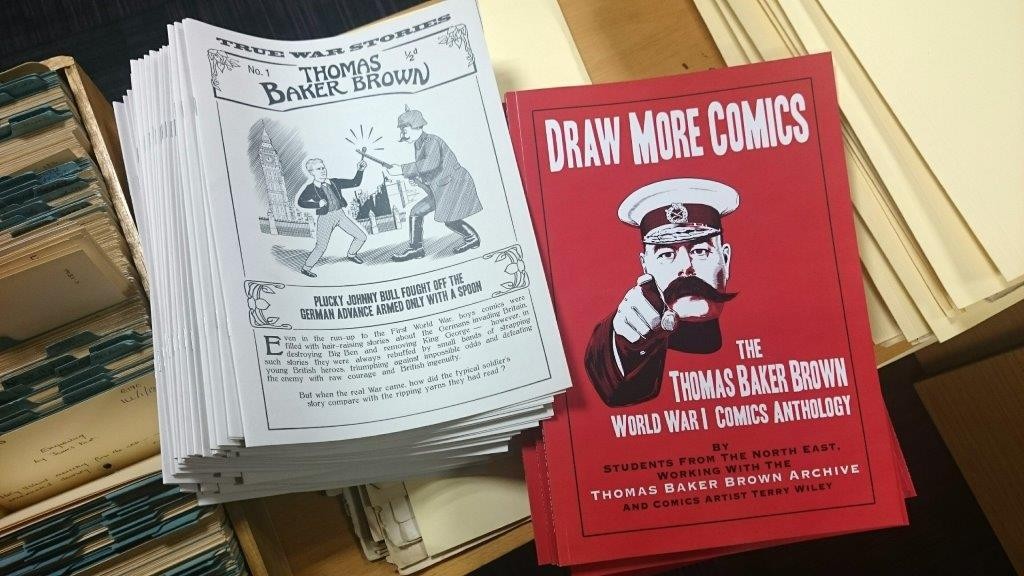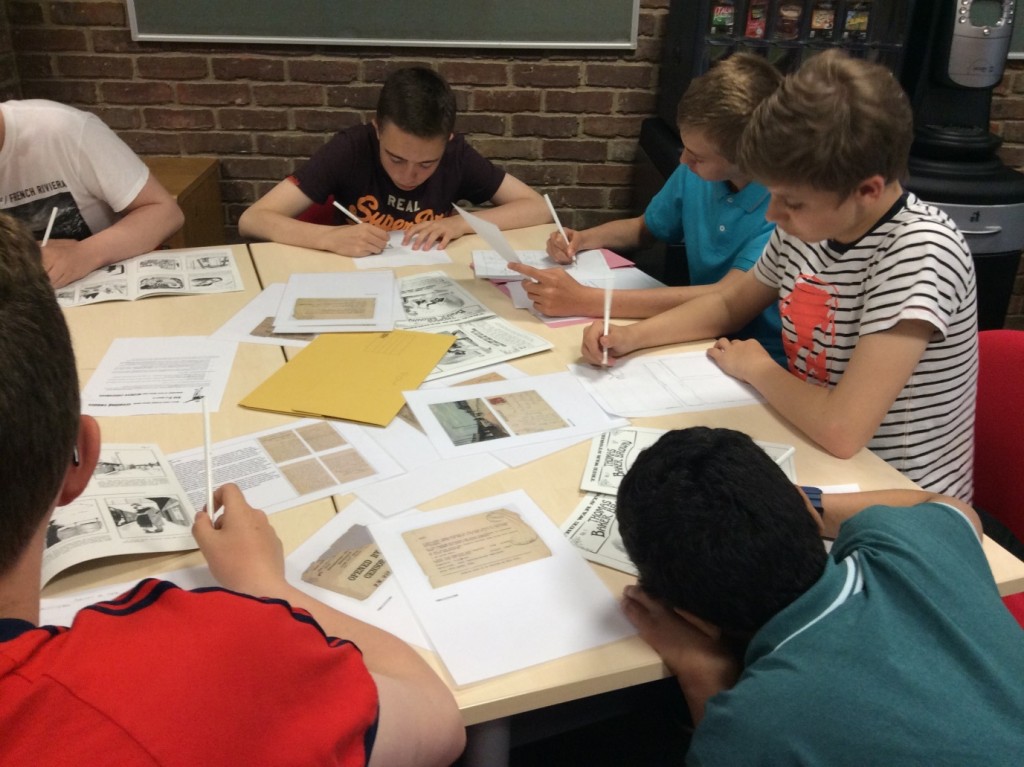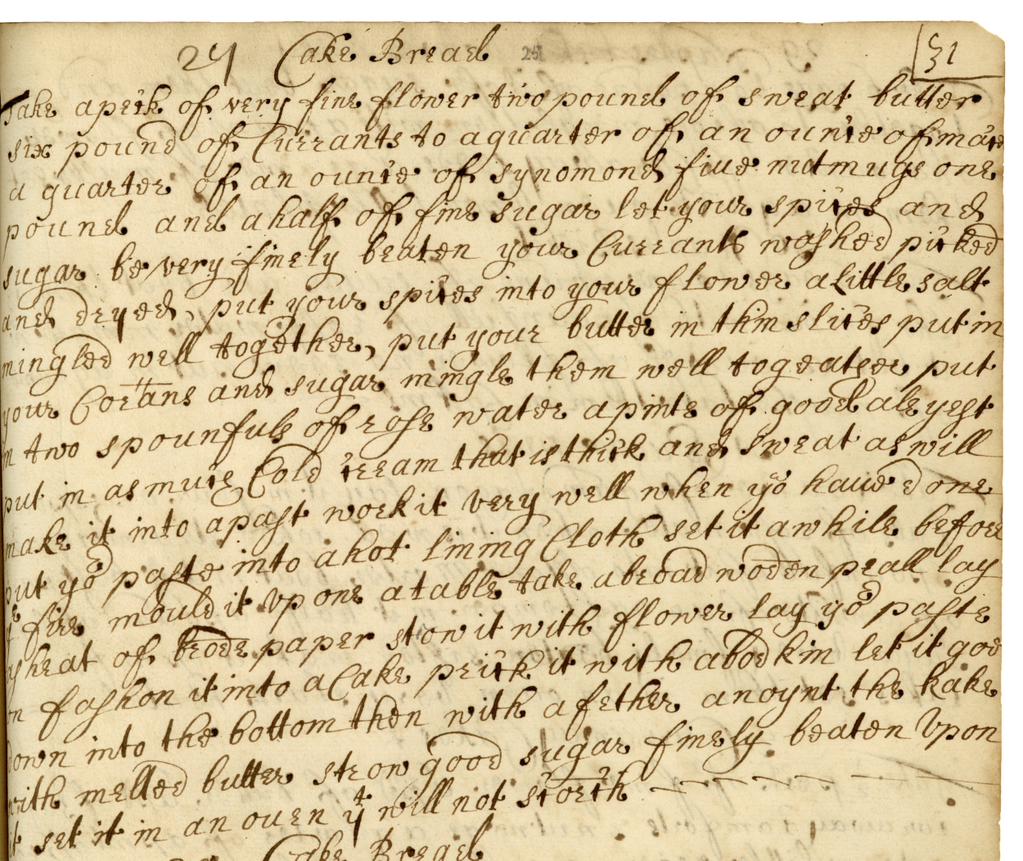Over 200 copies of the Thomas Baker Brown World War I Comics Anthology, produced by the young people who took part in our World War I Comics workshops just before the summer holidays have arrived from the printers, ready to be given out to the students who created them when they return to school shortly.
Thomas Baker Brown was a man from North Shields, Tyne and Wear, who served as a signaller in World War I. His archive, held here at Newcastle University Library, includes original comics from the time of the First World War and so it seemed fitting for us to use this medium to open up Thomas Baker Brown’s archive to a wider audience and to tell his wartime story.
Working with Applied Comics Etc and our archives and education outreach teams, comics artist Terry Wiley created a comic telling Tommy’s wartime story. Next we ran workshops in which local secondary school students explored the Thomas Baker Brown archive and worked with Terry to create their own comics. All of the comics have been published together in an anthology and can also be seen separately on our website, http://www.ncl.ac.uk/library/services/education-outreach/thomas-baker-brown.
On our website you will also find some of the resources we used in our workshops. We hope that by making these resources available online for teachers to use in the classroom, more young people will be given the opportunity to understand how archives help us write and draw history through creating their own World War I Comics.





